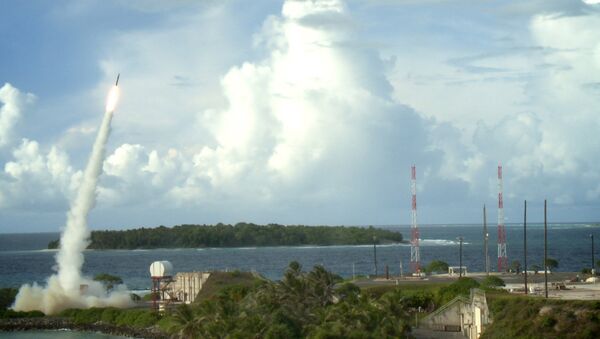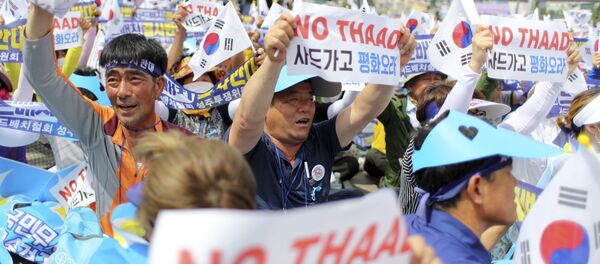"This sale furthers US national security and foreign policy interests, and supports the long-term security of Saudi Arabia and the Gulf region in the face of Iranian and other regional threats," the Defense Security Cooperation Agency (DCSA) said in a news release.
"This potential sale will substantially increase Saudi Arabia's capability to defend itself against the growing ballistic missile threat in the region [and] THAAD's exo-atmospheric, hit-to-kill capability will add an upper-tier to Saudi Arabia's layered missile defense architecture and will support modernization of the Royal Saudi Air Defense Force," the announcement says.
Congress has 30 days to write and pass legislation to block the deal or it will move forward.
Former US President Barack Obama first approved the sale of THAAD to Saudi Arabia "in principle at a summit at Camp David in 2015," Bruce Riedel, a 29-year CIA veteran and current Brookings Institution senior fellow, wrote June 5.
In addition to the US, THAAD has also been deployed to Turkey and the United Arab Emirates, and installation of THAAD missile batteries in South Korea began this year over opposition from Moscow and Beijing.
Saudi Arabia's interest in purchasing THAAD dates back to early 2015 when Michael Trotsky, Lockheed Martin vice president of air and missile defense systems, told The National on February 23 that Saudi Arabia was "very interested in discussing THAAD and determining if it's right for their country and how it is going to work with their architecture."
Lockheed Martin produces THAAD. The company's stock (NYSE: LMT) ticked up 0.60 percent to $316.46 per share at the close of trading hours Friday. The contracting giant's market capitalization is now $91.14 billion.
In 1991, Riyadh became the first Middle East nation to purchase the Patriot missile system, another Lockheed Martin product.



